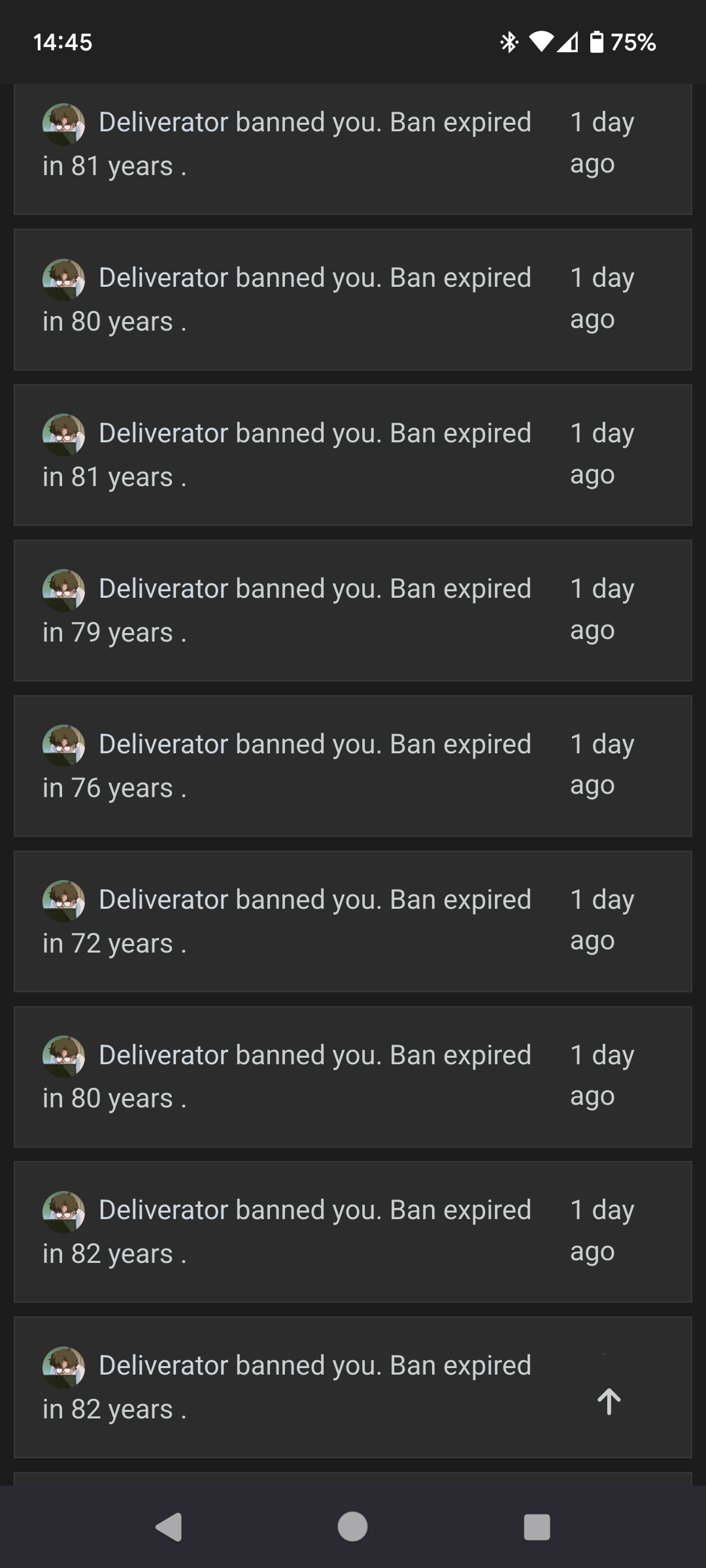this post was submitted on 30 Jul 2023
119 points (100.0% liked)
/kbin meta
8 readers
1 users here now
Magazine dedicated to discussions about the kbin itself. Provide feedback, ask questions, suggest improvements, and engage in conversations related to the platform organization, policies, features, and community dynamics. ---- * Roadmap 2023 * m/kbinDevlog * m/kbinDesign
founded 2 years ago
you are viewing a single comment's thread
view the rest of the comments
view the rest of the comments

@TheShadowKnows
@EnglishMobster @KairuByte an analogy isn't a strawman. He didn't say you were trivializing gun violence. He said the defense you used was faulty because it could just as readily be deployed to something more clearly harmful. It doesn't even prove the thing you are defending is bad, it just demonstrates that your argument defending it is a bad one.
My original post argument is summed up like this:
statement: The person who used the system to hurt the OP is the problem (true)
statement: Accountability and transparency is a positive attribute of the system and attacking it diminishes its availability to other users (true)
Statement: You (OP) are attacking the system instead of the person responsible for the issue (true)
conclusion: OP attacking the accountability and transparency attributes will only diminish the ability of users to use them appropriately and isn't targeting troublemakers. (valid and sound)
This is a valid argument as the conclusion flows from the statements. You can say it's not sound, by saying one or more of the statements is untrue.
But they didn't do that they said:
NGL this sounds like everyone ever who has defended a terrible thing and instead blamed an individual.
for example: "Guns aren't the problem, the people with guns that are the problem."
Grammatical errors aside, the argument presented here is:
statement: Your argument is in defense of a terrible thing (false)
statement: Your argument blames the individual (true)
statement: your argument is similar to "guns aren't the problem, the people with the guns that are the problem. (false) (that isn't an argument its two statements that are indicative of people who trivialize gun violence)
conclusion: Your argument is in defense of a terrible thing, like trivializing gun violence, because it blames an individual. (valid but untrue)
It cannot be said that this wasn't a strawman argument when the person states that I am in defense of a terrible thing that is "like" statements made by those who trivialize gun violence. It's a thinly veiled, poorly constructed, grammatically incorrect assault on me, instead of a rebuttal to my argument's component statements. You can absolutely tell me that you think that transparency and accountability is a bad thing. That would be your opinion and you may have examples of that, but I could then rebut with examples where it is a good thing. That is not what they did. I hope you can see that from this breakdown and keep an eye out for people who use this tactic on you in the future.
@TheShadowKnows
@EnglishMobster @KairuByte
I appreciate that you're attempting to put this in formal logical terms, but I think you're a little out of your depth. Your interlocutor was simply asserting that you are discounting the validity of systemic critique. He didn't imply that you had any position whatsoever on guns. He said your argument, if applied elsewhere, would lead to absurd results.
A strawman would be saying that you denied criticizing systems is ever valuable, and it's all down to personal responsibility. That's somewhat similar to what you said, but by reframing it as an absolute rule, it would be much easier to counter.
You're somewhat struggling to formulate the syllogisms here. I'll present the interlocutor's argument more precisely.
P1. If an argument works just as well to justify doing nothing to address systemic causes of gun violence, it is a poor argument.
P2. Your argument works just as well to justify...
C. Your argument is a poor argument.
Here would be your original syllogism.
P1. A system of rules that prioritizes freedom should not be blamed for actions of people who purposely abuse that freedom.
P2. The person who responded this way to downvote was misusing free access to downvote information.
C. Kbin's system that prioritizes freedom is blameless for a user responding to downvotes.
And here's how we would apply that to gun violence
P1. A system of rules that prioritizes freedom should not be blamed for actions of people who purposely abuse that freedom.
P2. A person who commits gun violence is misusing that freedom.
C. The USA’s laws that priotize freedom is blameless for gun violence.